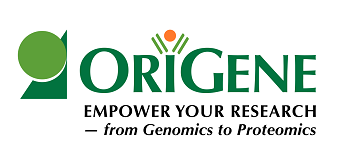-
Research area
- Biochemicals
- Blood and Biospecimens
- Cell biology
- Environmental
- Flow Cytometry
- Forensic Science
- Genomics
- Immunology
- Labware
- Microbiology
- Pathology
- Transplantation
429 Too Many Requests 429 Too Many Requests
nginx - Products
- Suppliers
- About us
- Resources
- Events
- Support
- Lab Services
- Promotions
Product description
Platelet Factor IV (PF4) is a 70 aa protein released from the alpha granules of activated platelets. PF4 is synthesized by bone marrow megakaryocytes and stored in alpha granules as a non-covalent bound tetramer. Platelet factor IV binds with high affinity to heparin and plays a role in inflammation and wound repair. PF4 is a chemoattractant for neutrophils, monocytes and fibroblasts and has been reported to be an immunologic regulator that inhibits suppressor T-cell activity. Heparin-Induced Thrombocytopenia/Thrombosis (HIT/HITT) is a life-threatening complication that manifests itself in a small population of patients exposed to intravenous-heparin. It is characterized by the production of PF4/heparin auto-antibodies. These auto-antibodies bind the PF4/heparin complexes and subsequently bind the FCGIIa receptor on the platelets surface through their Fc region. This activates the platelets and can initiate clot formation.
Specifications
Applications
WB, ELISA
Host
Mouse
Clonality
Monoclonal
Clone
KKO
Isotype
IgG2b
Supplier
OriGene Technologies Inc
Shipping & storage
Shipping condition
Blue Ice
Storage temperature
2-8°C
Do you have any questions about this product?
Order your product by email
Productname
PF4 mouse monoclonal antibody, clone KKO, Purified
AM31851PU-N
By filling out this form, you are placing an order by e-mail. You will receive an order confirmation within one working day. The order cannot be modified after receipt of the order confirmation.
Request a sample
Productname
PF4 mouse monoclonal antibody, clone KKO, Purified
AM31851PU-N
By filling out this form, you request a sample. You will receive an order confirmation within one working day. The order cannot be modified after receipt of the order confirmation.
Are you looking for specific products, alternatives or documentation?












